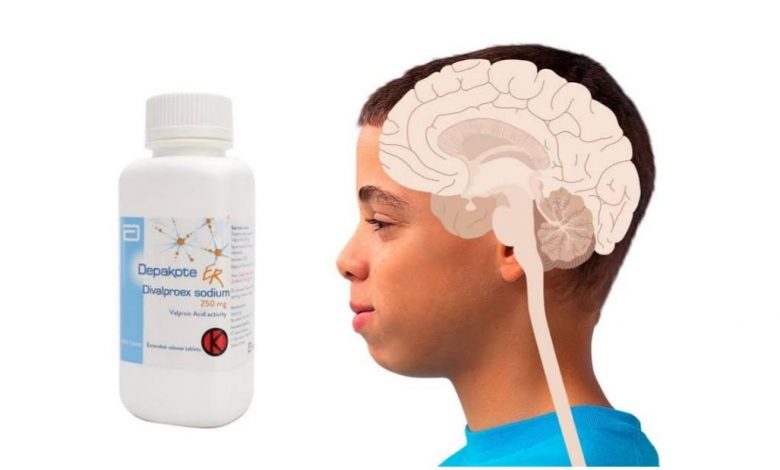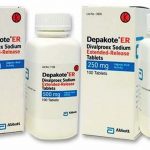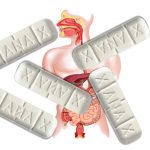How Long Does Depakote Stay In Your System? (FAQs)

What is Depakote?
Depakote is a brand of divalproex sodium a medication used alone or with other medications to treat certain types of seizures. Depakote is also used to treat mania (episodes of frenzied, abnormally excited mood) in people with bipolar disorder (manic-depressive disorder; a disease that causes episodes of depression, episodes of mania, and other abnormal moods). It is also used to prevent migraine headaches but not to relieve headaches that have already begun. Depakote is in a class of medications called anticonvulsants. It works by increasing the amount of a certain natural substance in the brain.
How does Depakote make you feel?
People who have been taking Depakote for close to a year reported that it helped mood swings, significantly improves concentration, and relieves anxiety problems. However, common side effects experienced by users of Depakote include drowsiness, nausea, abdominal pain, diarrhea, vomiting, low platelet count, tremors, tiredness, and hair loss. The side effects may be mild to moderate, but they may also be signs of a more serious condition.
How long does it take for Depakote to take effect?
It is very important to tell your doctor how you feel things are going during the first few weeks after you start taking valproate. It will probably take several weeks to see big enough changes in your symptoms to decide if valproate is the right medication for you.
Mood stabilizer treatment is generally needed lifelong for persons with bipolar disorder. Your doctor can best discuss the duration of treatment you need based on your symptoms and illness.
How long does Depakote stay in your system?
The half-life of Depakote is roughly 14 hours, the half-life of a drug is the time it takes for the amount of a drug’s active substance in your body to reduce by half. Generally, it takes five half-lives to eliminate most drugs. So, while the levels of Depakote may not be high enough to have clinical effects, Depakote can remain in your system for about three days following a single dose.
Frequently asked questions (FAQs)
Is Depakote an antipsychotic?
No, Depakote is an anticonvulsant (Mood stabilizer) but they are commonly administered with antipsychotic drugs (APDs) in the treatment of bipolar disorder and schizophrenia. The basis for any synergism between these classes of drugs in either group of disorders has been little studied.
Does Depakote cause weight gain?
Yes, weight gain is a common side effect of Depakote because it often causes an increased appetite by triggering pancreatic insulin secretion which results in people consuming more food leading to weight gain. People taking it to treat migraine headaches may have decreased serotonin levels, which can also lead to cravings and overeating.
Does Depakote make you sleepy?
Yes, Depakote can cause drowsiness, which may decrease activity level. It is also capable of altering sleep structures in epileptic patients according to research.
Can you take melatonin with Depakote?
No, you should not take Depakote together with melatonin doing so may increase side effects such as dizziness, drowsiness, confusion, and difficulty concentrating. Some people, especially the elderly, may also experience impairment in thinking, judgment, and motor coordination.
How long does it take Depakote to reach therapeutic levels?
Following oral administration of Depakote, the absolute bioavailability of valproic acid approaches 100%. Mean terminal half-life is about 14 hours, steady-state conditions usually being achieved within 3 – 4 days. It is absorbed rapidly and completely after oral administration, with peak plasma concentrations Achieved Within 1-5 hours.
What are the side effects of Depakote?
Depakote may cause side effects. Tell your doctor if any of these symptoms are severe or do not go away:
• abnormal thinking
• agitation
• back pain
• blurred or double vision
• changes in appetite
• constipation
• diarrhea
• dizziness
• drowsiness
• hair loss
• headache
• mood swings
• problems with walking or coordination
• ringing in the ears
• uncontrollable movements of the eyes
• uncontrollable shaking of a part of the body
• weight changes
Some side effects can be serious. If you experience any of the following symptoms, call your doctor immediately:
• bruising
• confusion
• difficulty breathing or swallowing
• drop in body temperature
• fever
• hives
• peeling or blistering skin
• rash
• swelling of face, eyes, lips, tongue, or throat
• swollen glands
• tiny purple or red spots on the skin
• tiredness
• unusual bruising or bleeding
• vomiting
• weakness or swelling in the joints
Depakote may cause other side effects. Call your doctor if you have any unusual problems while taking this medication.
Can I take alcohol while taking Depakote?
No, you should avoid drinking alcohol while taking Depakote. Depakote produces changes in brain chemistry that make seizures less likely to happen by slowing down brain activity. That can make you drowsy and may also make your thinking a bit fuzzy. Alcohol can amplify those side effects.





